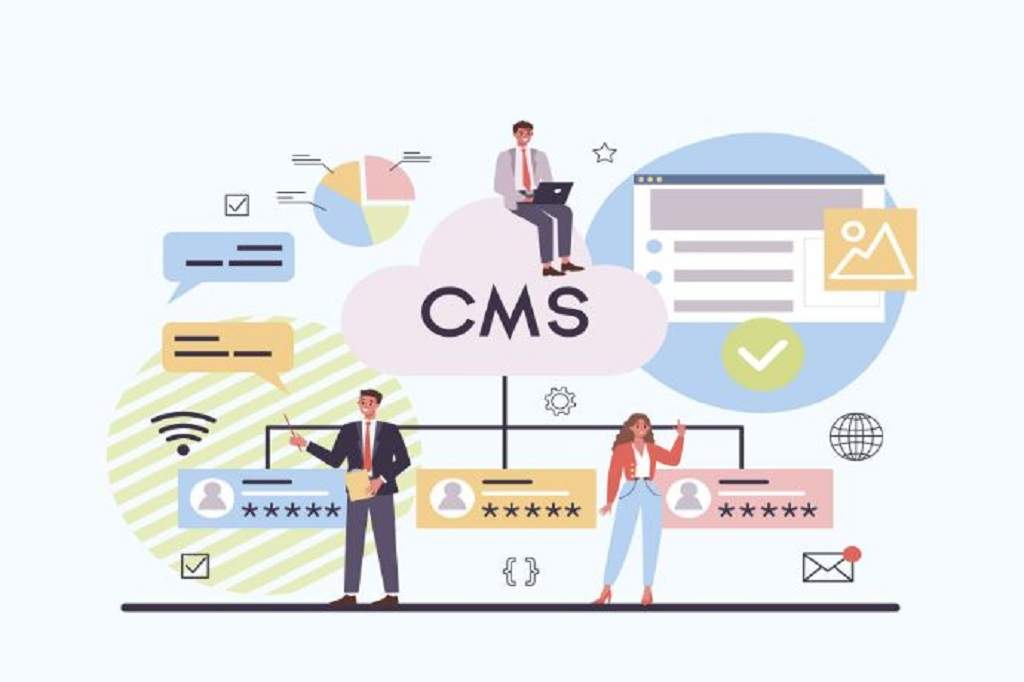The world of digital material is rapidly changing which is why CMS development services in USA have been at the center of that change. As both individuals and companies continue to create huge amounts of content and data, the need for effective user-friendly, secure, and user-friendly CMS development services in USA are more crucial. This article we’ll look at the future features that will comprise substance Management Systems within the USA in 2025. We will also look at the most recent technology, enhancements to user experience as well as individualization trends, security concerns and the perfect way to select the best CMS to meet future requirements.
A brief overview of information Management Systems
An substance Management System (CMS) is a computer program that lets users create and edit, control and publish online material. CMS platforms are crucial tools for blogs, websites online stores, e-commerce websites, as well as corporate websites. They offer additional users with a simple interface, giving people who don’t have technical skills to manage material effortlessly. The traditional CMS platforms comprise WordPress, Joomla, and Drupal that have dominated the market for a long time. However it is evident that the CMS landscape is changing rapidly as a result of technological advancements and changing expectations of users.
Future Technologies Shaping CMS
In 2025, many important technologies are expected to revolutionize how CMS development services in USA are viewed. CMS landscape:
Artificial Intelligence and Machine Learning
AI Machine learning and AI are transforming CMS through automation of material making, personalization and managing. These technologies allow CMS platforms to analyse the behavior of users, identify trends, and create material recommendations that increase the user’s experience and satisfaction.
Headless CMS
The Headless CMS architecture is a way to separate the front end and back-end. This allows material to be distributed across diverse platforms, including mobile apps, websites, as well as IoT devices. This flexibility is essential in the current world of material is required to be accessible on a variety of types of platforms and gadgets.
Cloud-Based CMS
Cloud-based CMS solutions provide scalability, flexibility, and cost efficiency. They remove the requirement for an on-premises infrastructure, which allows organizations control material from any location. Cloud CMS platforms add continuous updates as well as security improvements.
Blockchain Technology
Blockchain technology can improve CMS by offering secure, transparent, and tamper-proofed documents of material production and modification. This technology is particularly useful for businesses that need strict compliance and audit trail.
The importance of UX in Future CMS
Experience for users (UX) is a major factor in what lies ahead for CMS development services in USA. A CMS that has an effective UX will have a significant impact on the user’s satisfaction, engagement as well as productivity. The most important UX aspects for the future of CMS include:
Intuitive Interfaces
Future CMS platforms should help in providing user-friendly interfaces that facilitate material production and managing. Drag-and-drop editors and dashboards that can be customized and workflows that are streamlined will increase the user experience.
Mobile Response
With the increased usage of mobile devices, CMS platforms need to assure they have material is easy to access and accessible on smartphones and tablets. A responsive design and mobile-friendly interfaces are vital.
Personalization based on data-driven insights
Personalization is a major trend in the field of digital marketing. the future CMS development services in USA will make use of data-driven insights to offer additional personalized material experiences
Analyzing and collecting data
Analytics tools that are advanced will allow CMS platforms to gather and analyze the data of users, including browsing habits as well as preferences and interactions. These data can be used to create precise user profiles.
Customized Material Delivery
By utilizing the data-driven insights of analytics, CMS platforms can deliver personal material suggestions, dynamic website elements, as well as targeted marketing campaigns. This kind of personalization increases the user’s engagement and increases conversion rates.
Conclusion
Future of information CMS development services in USA 2025 is set to see significant advances due to the development of new technologies, improvements to user experience and personalized web developments. As companies strive to provide an engaging and secure digital experience picking the best CMS is becoming more important. By staying on top of technology trends and prioritizing customer needs, businesses will be able to benefit from the full potential of the future CMS platforms to help them succeed in the age of digital.
Frequently Asked Questions
Q1: What’s the future for material control systems?
A: In the future, material control systems can be determined by the advancements in technology such as artificial intelligence machine learning and headless CMS and cloud-based solutions blockchain and immersive technologies such as AR as well as VR. These innovations will benefit improve material creation and personalization, security and the user experience.
Q2: Are the headless CMS in the near future?
A: Headless CMS is becoming increasingly regarded as the new standard for material management because of its versatility in the delivery of material across many platforms and devices. By separating the front-end from the back-end the headless CMS can deliver more flexible and flexible material delivery.
Q3: What are the essential components for the operation of the material managing system?
A: For the material management platform, most important components are a webserver and database, as well as programming language (such like PHP, Python, or Node.js) and the CMS software itself. In addition themes, plugins as well as security measures are vital to run a functional CMS.
Q4: Is there a most frequently used material control system?
A: At present, WordPress remains the most extensively used material management system in the world. It is popular for its easy-to-use interface and extensive plugin ecosystem and the flexibility to customize. Other well-known CMS systems comprise Joomla, Drupal, and the newest heads-less CMS solutions.
